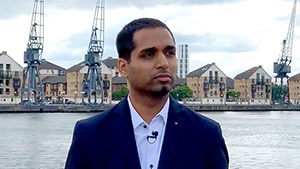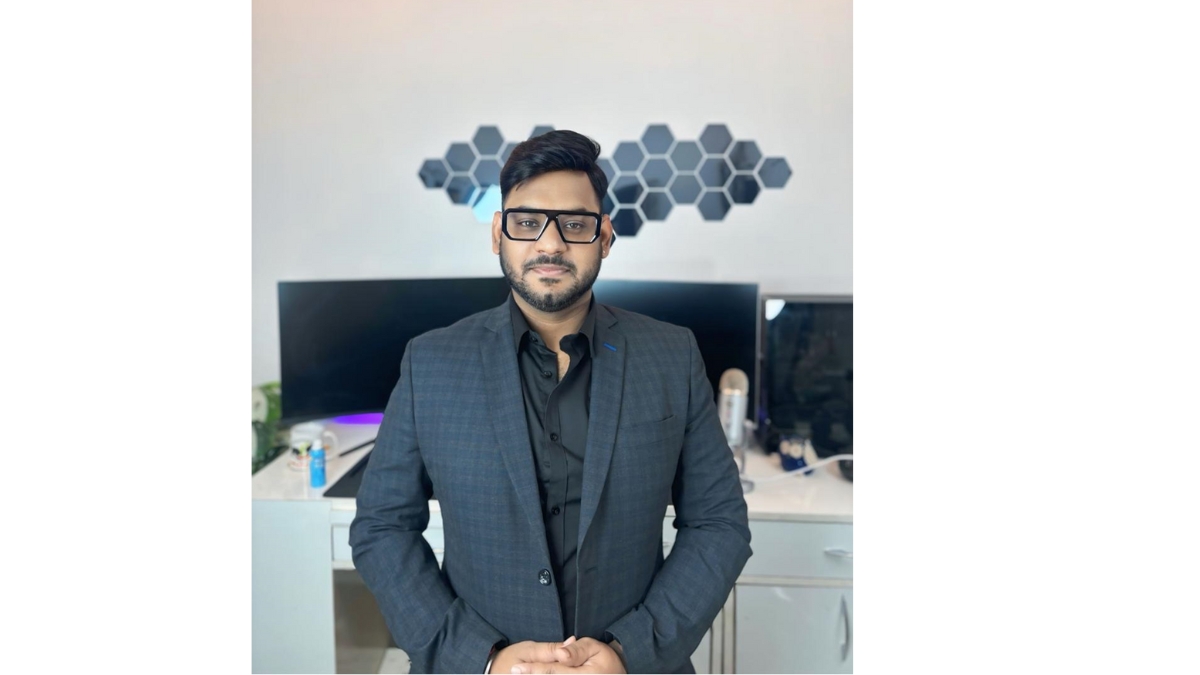‘Consumer driving disruption, not tech’: Nitin Rakesh, CEO of Mphasis

“We are the plumbers for software,” says a candid Nitin Rakesh, who is the chief executive officer (CEO) and managing director (MD) of Indian tech company Mphasis, while speaking with HT ahead of this year’s edition of the London Tech Week technology showcase. The company’s office space, overlooking an iconic building called The Gherkin, remains abuzz with frenetic activity which dialled up over the past few weeks. A bit more than usual.
Earlier this week, Indian tech company Mphasis announced the acquisition of the UK-based tech firm eBECS Ltd, which itself is a subsidiary of DXC UK International Operations Ltd., which is one of the largest Microsoft Dynamics partners in the region. They specialise in custom solutions for organisations, using the Microsoft Dynamics 365 as the foundation.
For Mphasis, and the solutions they develop for enterprises, the brief is very simple. The consumer. “Each brand is now thinking how they really become more direct to consumer and how do we keep that engagement so that loyalty stays for much longer,” points out Anurag Bhatia, who is head of Europe at Mphasis, mentioning the example of solutions that automakers globally are looking for.
Acquisitions and pivots
The eBECS acquisition is part of the pivot that Rakesh alludes to, something they say started for the company around five years ago. “We call the pivot powered by cloud and cognitive. I think everybody understands today, what it means. Thanks to GPT we’ve understood what AI can do,” he says, before adding, “that’s the wave we think we’ll have to lead our customers into.”
It follows what happened earlier in the month, when the IT solutions provider unveiled its business unit called, Mphasis.ai, with the mandate to extensively use artificial intelligence (AI) to help organisations improve productivity, efficiency and potentially unlock new avenues. Last month, Mphasis announced a partnership with conversational AI solutions firm, Kore.ai, the expertise of which will help build solutions that allow companies to connect better with consumers, using intelligent virtual assistants.
“It is extremely useful to use something that is a smart, intelligent machine that assists the agent, or you can create self-help and digital integration also. Any element of help desk same thing,” he says. Mphasis points out that they do not have to go and build an alternative conversational AI system to compete with ChatGPT for instance but must use GPT itself in the best possible way when designing solutions for enterprises.
Consumers’ role in UK and India’s tech synergy
This year’s London Tech Week begins on June 12, and will extensively focus on artificial intelligence (AI), augmented reality (AR) and fintech.
“The UK and India share a unique relationship that has strengthened over the years through living bridge, investment and cultural links. Numerous Indian companies continue to set up R&D centres in the UK in order to access innovative solutions,” Harjinder Kang, UK’s Trade Commissioner for South Asia, tells HT.
Last year, the UK became only the 3rd country, behind the US and China, to have a tech sector valued at over $1 trillion.
Consumers are the reason why new age tech tools, and the apps that use these as their foundations, are doing well. Be it online banking, shopping or digital payments as some examples. That has led to an increased requirement for tools that are quicker to turn around, allow for extensive functionality and can be course corrected quickly, if need be.
Equally some aren’t. The metaverse, which never took off in the truest sense, being a recent example.
While consumers may be driving this change that’s leading to rapid adoption of technology, digitisation and online services, is there scope for organisations having these AI driven solutions created and deployed for their product lines, to take a step back and assess the importance of critical new elements?
“Human beings are impatient people. What used to take two or four years to launch a new product, now has to be done faster because somebody else has figured out how to do it faster. Amazon spoils the world by launching a new product, so’s Google, Facebook, Paytm – just the way of doing business has changed,” says Rakesh.
There are examples in banking, the auto industry and even the often-complicated process of buying an insurance policy. “Think of this from an enterprise standpoint, a bank or insurance company? They’ve done something for the last 50 years, in one way. They have a big change to adopt there because the systems aren’t just meant to do what we asked them to do,” he says.
Taking forward the example of banks, the era of end of day cycles for updating cash balances and cross-border trade settlements have been replaced by almost real-time transactions and updates.
The changes, particularly the consumer interfacing ones, have to be done while systems remain fully operational. “It is a bit like trying to change the wheels of a moving car.” A bank cannot shut down services for any period of time, no matter how short or extended, just to update their systems and processes.
Need for adoption will vary
Mphasis is cognizant to the fact that in addition to differing needs of industries and ecosystems, the underlying structures will dictate how quickly new technologies such as AI, machine learning, AR and VR are adopted.
“By definition, consumer facing industries like media and retail had to adopt these technologies,” say Rakesh and Bhatia. They point to the early days of battle between Walmart and Amazon, where the former quickly pivoted into a digital ecommerce led business with the Flipkart acquisition a part of that.
How important will it be to course-correct, and will it be possible? There is the example of metaverse recently, and before that, blockchain. Secondly, there are ways to reduce time and cost by skipping the stand-alone testing phase, which is replaced by automation. That’s where the creativity of solution, comes into play.
“But on the media side, you’ll see Netflix has done a lot of chaos in that for the last 10 years. Every traditional production house is now in the OTT business and in the cord cutting drama that’s going on, cable companies are still getting repercussions in their business,” they add.
How about customised generative AI platforms? That is very much a prospect, according to Mphasis.
I don’t think every enterprise will say open sesame because they need to build guardrails, controls and bring validation for it to be responsible and eliminate all the biases. So that’s again an opportunity where at some point, you will start seeing enterprises build generative AI platforms,” predicts Rakesh. He believes the Microsoft Copilot AI platform is a good example of that.

Atul Tiwari is a seasoned journalist at Mumbai Times, specializing in city news, culture, and human-interest stories. With a knack for uncovering compelling narratives, Atul brings Mumbai’s vibrant spirit to life through his writing.






